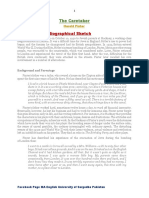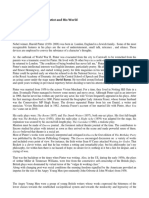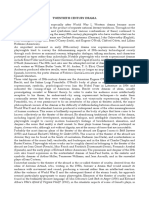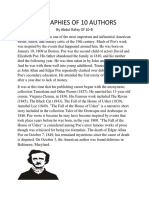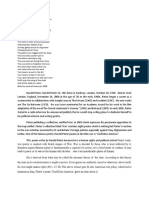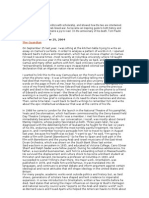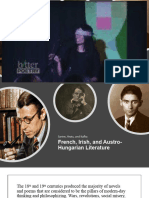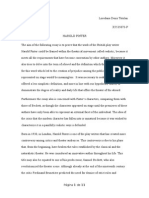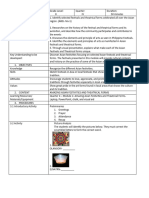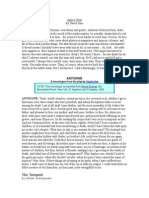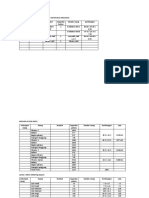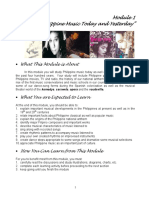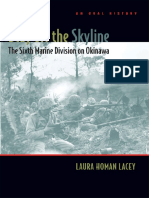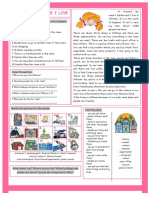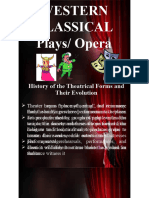0% found this document useful (0 votes)
13 views9 pagesDrama Assignment
Harold Pinter (1930–2008) was a renowned British playwright whose works explored themes of power, control, and societal oppression, influenced by his working-class upbringing and experiences during World War II. He is known for his unique writing style, characterized by minimalist dialogue, pauses, and psychological tension, which has significantly shaped modern theatre. Pinter was also a political activist, using his platform to critique state violence and censorship, and received the Nobel Prize in Literature in 2005 for his impactful contributions to literature and social discourse.
Uploaded by
amnamalik1904Copyright
© © All Rights Reserved
We take content rights seriously. If you suspect this is your content, claim it here.
Available Formats
Download as DOCX, PDF, TXT or read online on Scribd
0% found this document useful (0 votes)
13 views9 pagesDrama Assignment
Harold Pinter (1930–2008) was a renowned British playwright whose works explored themes of power, control, and societal oppression, influenced by his working-class upbringing and experiences during World War II. He is known for his unique writing style, characterized by minimalist dialogue, pauses, and psychological tension, which has significantly shaped modern theatre. Pinter was also a political activist, using his platform to critique state violence and censorship, and received the Nobel Prize in Literature in 2005 for his impactful contributions to literature and social discourse.
Uploaded by
amnamalik1904Copyright
© © All Rights Reserved
We take content rights seriously. If you suspect this is your content, claim it here.
Available Formats
Download as DOCX, PDF, TXT or read online on Scribd
/ 9



